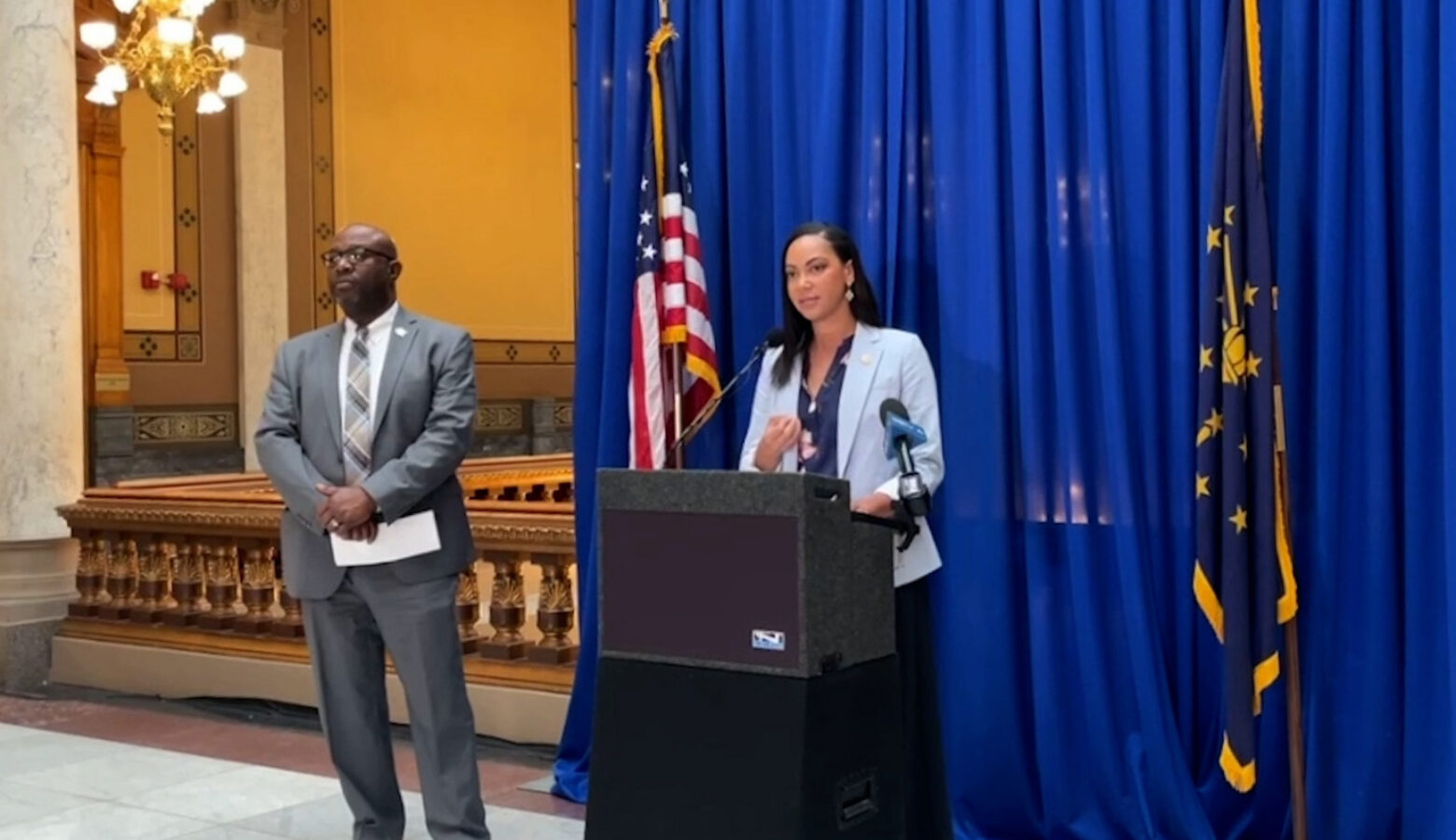Senate Democrats push for increased education focus for state budget

Members of the Senate Democratic Caucus called on Republican senators to do more in support of public education at a press conference on Thursday.
The caucus said it believes current budget allocations for public education do not go far enough – with concerns about the lack of funding for schools to recover from the COVID-19 pandemic, no increases for teacher pay, and issues with the state’s voucher program appropriations.
The state’s two-year proposed budget would include more than $1 billion toward the state’s voucher program. The voucher program has already been greatly expanded from its initial version — where it helped low- or middle-income parents of children with disabilities leave public schools.
The controversial expansion of this program would funnel more money toward expanding this program, which many caucus members say is unnecessary. It would allow families of four that earn up to about $220,000 a year to be eligible for vouchers.
Sen. Andrea Hunley (D-Indianapolis) said the budget still leaves public school students drawing a “short straw” for funding. She criticized the large increase in new dollars to expand the private school voucher program.
“In its current form, the budget would funnel about a third of new dollars to school types that educate less than 10 percent of our students,” Hunley said. “That leaves just 70 percent of new money to cover more than 90 percent of our students in public schools, which already have to fight year after year to secure every dollar possible.”
Sen. Fady Qauddoura agreed, citing an Indiana University study which showed that nearly 70 percent of students who receive voucher funds never attended public school in the first place
“If you take $500 million for voucher schools or for vouchers, the amount of money that is left is not sufficient to fully fund our public schools and teacher salary increases across the state,” he said about the estimated one-year cost to increase the choice program.
Join the conversation and sign up for the Indiana Two-Way. Text “Indiana” to 73224. Your comments and questions in response to our weekly text help us find the answers you need on statewide issues throughout the legislative session. And follow along with our bill tracker.
Qaddoura also said the bill also falls short on how it ends textbook fees for families. Gov. Eric Holcomb proposed a state appropriation of $160 million to fully-fund textbooks. Later, House Republicans pushed language in their proposed budget that would eliminate the textbook fee.
“So they just basically eliminated or prohibited schools from collecting textbook fees from parents,” Qaddoura said. “But they mandated that schools cover that cost.”
This follows Holcomb’s calls earlier this year to eliminate school textbook fees.
Hunley criticized the budget’s “complexity” and said the formulas used to calculate where funding is allocated are confusing and disproportionate in some areas.
“My caucus will be pushing for increased funding for complexity, as well as consistent and adequate allocation of those funds,” she said.
Another issue Hunley wants to push for is increased accountability and transparency in non-public schools.
“We need to make sure that the students, regardless of their school type, do have support to have funding,” she said. “I think that we need to also make sure that we’re not doing it at the expense of traditional public schools.
Qaddoura also mentioned inflation and COVID-19-adjusted relief money as another priority. He said teachers aren’t being adequately paid.
“With inflation, we know that teacher raises and compensation recommendations prior to COVID in 2019, recommended that our teachers should be paid an average of $60,000,” he said. “Those numbers have increased since then, and we are calling for a budget that fully funds our public schools and fully invests in our teachers to match the teacher shortage.”
The Senate has not released its version of the proposed budget yet – which is the next step in the bill being debated and approved by both chambers before moving through to the governor’s desk.
Violet is our daily news reporter. Contact her at vcomberwilen@wfyi.org or follow her on Twitter at @ComberWilen.
